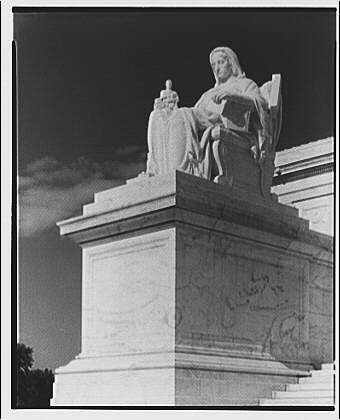Industry News
Federal Circuit Holds Importer's Due Process Rights Violated in EAPA Case
TweetAug. 1, 2023
By:
Ashley J. Bodden
In July, the U.S. Court of Appeals for the Federal Circuit ruled that U.S. Customs and Border Protection (CBP) violated importer Royal Brush Manufacturing’s due process rights by failing to provide access to the business confidential information. Judge Dyk stated in the opinion that “CBP relied on factual information that was not provided to Royal Brush to determine that Royal Brush had evaded duties. This, in and of itself, is a clear violation of due process.”

On March 27, 2018, CBP initiated an investigation for an alleged evasion by Royal Brush of antidumping duties. Royal Brush allegedly was transshipping pencils from China through the Philippines, falsely claiming the pencils to be Philippine origin and therefore evading duties on certain pencils from China. CBP only provided Royal Brush with the public version of the CBP attaché site visit report, in which all the photographs were redacted. In November 2018, CBP conducted a verification site visit, concluding that the Philippines manufacturer did not have the capacity to produce sufficient quantities of pencils to account for the total number of pencils.
The Federal Circuit ruled that the one “relatively immutable” principle of due process, where the government action seriously injures an individual, applies to cases where facts have been withheld during an administrative proceeding. The court stated that due process includes the right to know what evidence is being used against one, and that it was not aware of any court holding that confidential business information is exempt from this rule. The court also found that there was no legitimate government interest in refusing to provide confidential business information.
The government argued that confidential business information cannot be released without an EAPA statute or regulation authorizing a protective order. The government relied on the Trade Secrets Act, which prohibits government employees from disclosing trade secret information “to any extent not authorized by law.” The court concluded that the release of information is “authorized by law” if that release is required as a matter of constitutional due process.
The court found that the government’s concern with public disclosure is unwarranted because CBP has the inherent authority to utilize protective orders in appropriate circumstances, as in this case. Judge Dyk wrote, “the right to due process does not depend on whether statutes and regulations provide what is required by the constitution.”
Although the government previously argued that neither EAPA statute nor regulations mandate the use of administrative protection orders in the Court of International Trade, the Federal Circuit found that the statute and regulations “do not bar protective orders.” The government offered no reason that the use of protective orders would impair the function of the EAPA process. Therefore, the court found that CBP has inherent authority to provide a protective order during an EAPA proceeding.
Since CBP relied upon factual information not provided to Royal Brush to support its determination, and because it was not remedied after the remand from CIT to CBP, the Court saw this as a clear violation of due process. In accordance with its decision, Royal Brush will be provided access to the numerical data used to calculate the manufacturer’s production capacity and relevant photographs, subject to a productive order. Therefore, the Court did not reach the constitutional question of a right to rebuttal because it concluded that the regulations themselves provide the right to rebut because CBP relied on new factual information.
If you have any questions about antidumping or countervailing duties or EAPA please contact any Barnes, Richardson & Colburn attorney.
